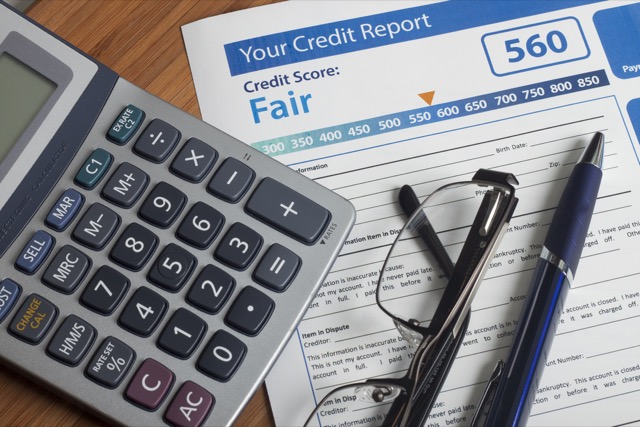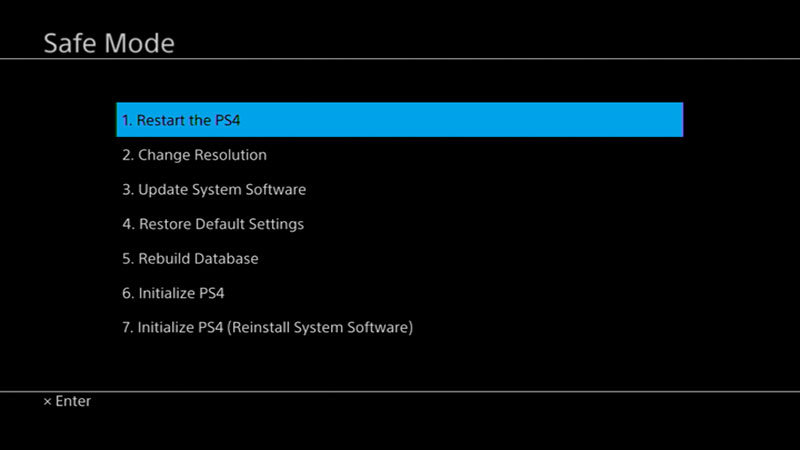

Facebook’s privacy policy has always been a bit of an enigma, and that makes a lot of people just ignore it entirely (despite the terrifying amount of things Facebook knows about you). But not considering how your actions on Facebook could affect your financial life is a big mistake, as many people have found out over the past few years. Here are five ways that your actions on Facebook could cost you money if you’re not careful.
Your credit score is a very important part of your overall financial health—if your score is high, you’re likely to get approved for loans or credit cards with lower interest rates than you would if your score was low. This is why it’s important to do what you can to keep your credit score as high as possible.

When determining your credit score, the three big providers—TransUnion, Equifax, and Experian—look at a wide range of factors. How many loans and credit cards you’ve had in the past, whether you made your payments on time, and so on. But they may soon be looking at your Facebook history, too. Naked Security reported that finance giants are looking into using social media as a metric of trustworthiness. According to FICO CEO William Lansing,
“If you look at how many times a person says ‘wasted’ in their profile, it has some value in predicting whether they’re going to repay their debt.
It’s not much, but it’s more than zero.”
It’s not clear how these companies would gain access to this sort of information, but it’s safe to assume that if they adopt this as a regular practice, they’ll be pretty good at it. Better spend some time cleaning up your Facebook profile if you’re looking to get a loan anytime soon.
The Internet is full of scams; email scams, website scams, online dating scams, and, predictably, social media scams. A few years ago, the Facebook lottery scam was popular, in which users would be contacted and told that they won a lottery, either directly from Facebook or through a well-known lottery like Powerball. Then those users would be fleeced for handling fees and other sums of money that would go directly to the scammers.

The “Nigerian”-style scam is still alive and well on Facebook, and there are a number of others that pop up every once in a while—because they continue to work. And one way to make sure that you’re more likely to get scammed is to give out personal information on Facebook. If you post your credit score, any information about your bank, personally identifying information, or anything else that’s unique to you, scammers have extra ammunition for making themselves look more convincing.
By including that information in an email or Facebook message to you, the scammers make themselves look much more legitimate. Don’t give away personal information on Facebook, and it’ll be easier to spot a potential scam.
Earlier this month, a jockey named Michelle Payne was the first female jockey to win the Melbourne Cup, a huge sporting event in Australia. Her odds were given at 100-to-1. What does this have to do with Facebook? A few people bet on Payne, and were so excited when they won that they posted selfies with their winning tickets. Bad idea.

By the time they got to the payout machines, someone else had already used the Facebook photo to make a fake of the ticket and cashed almost A$1000. Hopefully the perpetrators will be caught and the money returned to the rightful winners, but this should serve as a lesson to anyone else thinking about posting a selfie on Facebook.
Any other information you give out could also potentially be used by someone to impersonate you online—even things as simple as the street you grew up on could be used as a security question for an account, so think twice about what you post.
Popular YouTube users can make a huge amount of money through ads and paid product placement, but that money can be derailed by freebooting, the process of downloading a video and reposting it under one’s own name. A great example of this is SketchShe’s Mime Through Time, a popular and fun video that shows three comediennes lip syncing with songs from a number of different eras.
A number of people downloaded the video and reposted it to Facebook, meaning that millions of views weren’t directed through YouTube, where SketchShe would have made a lot of money from ad views. This was done without their consent or knowledge, and is a form of copyright infringement.
And while you probably won’t be affected by this, it’s a good thing to keep in mind. When you share videos, make sure that you’re sharing the official versions to give credit where it’s due and prevent the proliferation of this perfidious perpetration.
Much like credit bureaus, employers are also interested in your Facebook history and activity. When you apply for a job, you can bet that the company will Google your name to see if anything suspicious comes up, and to see what they can find out on Facebook. If your Facebook profile makes you look like a bad employee, you might not get the job.

You can also get fired from your job for what you do on Facebook. Business Insider ran an article last year detailing 17 times when people were fired for their Facebook activity. A waitress complained about customers and lost her job, three flight attendants shared information they weren’t supposed to and got fired, a teacher was let go for posting creepy Facebook comments on students’ posts… the list goes on.
Long story short: don’t be stupid on Facebook. It could cost you your job. (And if it gets you in the news, it could cost you a lot of future potential jobs, as well.)
For the most part, if you use some basic social media common sense, Facebook won’t cause you to lose any money. Be careful about the pictures you post, be suspicious of anyone who gets in touch and asks for information, and don’t use Facebook to say anything you wouldn’t want your boss to hear. Stick to those principles, and you’ll be fine.
Has Facebook cost you any money? Do you know anyone who’s had one of these experiences? Share your thoughts below so we can all be a bit smarter about how we use social media!
Image credits: Business woman enduring headaches by Alexandru Logel via Shutterstock, danielfela via Shutterstock.com, Feng Yu via Shutterstock.com, photoagent via Shutterstock.com, Syda Productions via Shutterstock.com.




 The Most Precise Way to Monitor Bluetooth Battery on iOS
The Most Precise Way to Monitor Bluetooth Battery on iOS Metroid Other M Walkthrough Video Guide in HQ (Wii)
Metroid Other M Walkthrough Video Guide in HQ (Wii) The Only Tool You'll Ever Need When Booking a Place to Stay
The Only Tool You'll Ever Need When Booking a Place to Stay Uncharted 4: 10 Locations We Want to Explore
Uncharted 4: 10 Locations We Want to Explore Tomb Raider: Tomb Locations and Walkthroughs Guide
Tomb Raider: Tomb Locations and Walkthroughs Guide